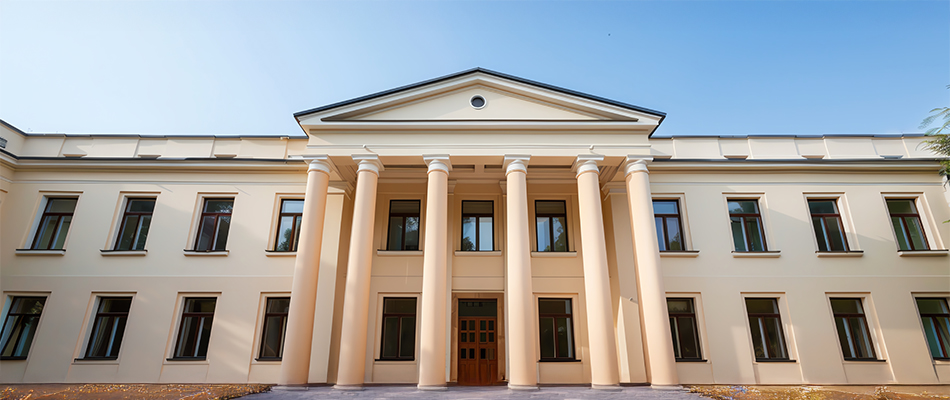Choosing the right institution is the first critical step toward a successful legal career. For aspiring lawyers and legal professionals in South Africa, identifying the top law schools in South Africa is essential for accessing quality education, reputable qualifications, and strong career opportunities. These institutions are known for their rigorous curricula, accredited programmes, and their role in shaping the country’s legal framework.
This article provides a detailed analysis of the top law schools in South Africa, examining the key criteria that define educational excellence, including accreditation, faculty expertise, and graduate employability. We examine the differences between public and private institutions, available specialisations, and comparative tuition structures. Whether you are seeking an LLB or a specialised postgraduate programme, this guide offers the insights needed to make an informed choice among the top law schools in South Africa.
Table of Contents
- Overview of Legal Education in South Africa
- Criteria for Evaluating Top Law Schools in South Africa
- Public vs Private Law Schools
- Specialisations Offered by Law Schools
- Tuition Fee Comparison
- Regenesys Law School’s Educational Approach
- How to Choose the Right Law School
- Conclusion
- Top Law Schools in South Africa – FAQ

Overview of Legal Education in South Africa
Legal education in South Africa is designed to equip students with a deep understanding of the law, combining theoretical knowledge with practical skills. The system is influenced by Roman-Dutch law, English common law, and indigenous legal traditions, resulting in a unique, multidisciplinary approach. Programmes such as Regenesys Law School’s Bachelor of Laws (LLB) are structured to meet the standards set by the Council on Higher Education.
The following outlines key aspects of legal education and career pathways in South Africa:
1. Programme Structure
Most LLB programmes span four years and include modules in Constitutional Law, Criminal Law, Contract Law, and more. Practical training, such as moot court competitions and legal clinics, is integral to the curriculum, helping students develop real-world skills.
2. Accreditation
Accreditation ensures that law programmes meet national quality standards. Graduating from an accredited institution is essential for eligibility to write the board exams required to practice law in South Africa.
3. Career Pathways
Law graduates pursue careers as attorneys, advocates, legal advisors, or policymakers. The demand for legal professionals remains steady, with opportunities in both public and private sectors.
Read More On: A Day in the Life of a Bachelor of Laws (LLB) Student
Criteria for Evaluating Top Law Schools in South Africa
When identifying the top law schools in South Africa, several factors come into play. These criteria enable prospective students to make informed choices based on academic excellence, available resources, and career support.
Key factors to consider when evaluating the top law schools in South Africa include reputation, faculty, resources, and graduate success:
1. Academic Reputation
The best law schools have a strong reputation for rigorous curricula, experienced faculty, and high graduation rates. They often feature in national and international rankings, reflecting their commitment to quality education.
2. Faculty Expertise
Schools with highly qualified lecturers, many of whom hold doctoral degrees or have extensive professional experience, provide valuable insights and mentorship to students.
3. Resources and Facilities
Access to well-stocked libraries, modern technology, and moot court facilities enhances the learning experience. These resources support both research and practical training, which are critical to legal education.
4. Graduate Outcomes
The success of alumni, including bar exam pass rates and employment statistics, is a key indicator of a school’s effectiveness. Institutions with strong industry connections often facilitate better job placements.
Read More On: Navigating the Legal Landscape: A Comprehensive Guide to Law Schools in South Africa

Public vs Private Law Schools
When considering the top law schools in South Africa, it is vital to understand the differences between public and private institutions. Understanding these differences helps you align your education with your career goals and learning style. Considering factors like class size, curriculum focus, and flexibility can make a significant impact on your success in law.
Let’s look at how public and private law schools differ and what that means for your legal education choices:
|
Factor |
Public Law Schools |
Private Law Schools |
|
Funding |
Government-funded |
Funded through tuition fees and private sources |
|
Tuition Fees |
Generally lower, more affordable |
Higher, due to reliance on private funding |
|
Class Size |
Larger student bodies, less individual attention |
Smaller classes with more personalised attention |
|
Curriculum & Resources |
Broad range of courses with extensive facilities |
Focused programmes, often tailored for practical and flexible learning |
|
Flexibility |
Structured schedules with less flexibility |
More flexible study options (e.g., part-time, online) |
|
Learning Style |
Theory-driven with wide academic exposure | Practical, experiential approach (e.g, Regenesys Law School ) |
|
Career Fit |
Suitable for students seeking affordable education and broad exposure |
Ideal for those wanting tailored, career-focused training with closer mentorship |
Both types of schools can be among the top law schools in South Africa, and the choice between them depends on individual preferences, financial considerations, and career goals.
Specialisations Offered by Law Schools
Many of the top law schools in South Africa offer specialisations within their LLB programmes, allowing students to focus on areas of interest.
While direct specialisations are not offered at the undergraduate (LLB) level, students can focus in an interested field through elective modules.
Listed below are some electives offered by the Regenesys Bachelor of Laws LLB programme:
- Environmental Law – Covers legal principles related to environmental protection, sustainability and regulatory compliance.
- International Business Law – Focuses on cross-border trade rules, corporate governance and commercial transactions.
- Cyber Law – Examines digital regulation, data protection and legal issues around online activity.
- Medical Law – Addresses healthcare regulation, patient rights and medico-legal ethics.
- Insurance Law – Covers principles of insurance contracts, claims and regulatory frameworks.
These specialisation enhance the offerings of top law schools in South Africa, providing students with targeted skills for their future careers.
Tuition Fee Comparison
Understanding tuition fees is an important factor when researching legal education options. The cost of studying law can vary significantly depending on the type of institution and programme structure. This information can help prospective students make informed financial decisions alongside considering academic quality and career outcomes.
Graduate outcomes, such as employability, bar exam pass rates, and career progression, are closely linked to tuition levels and the resources a school provides. When researching law school rankings SA, it is helpful to note that tuition often reflects both the institution’s reputation and the resources available to students. The best law school in SA for one person may not be the same for another, as individual budgets and career goals play a significant role in determining the right fit.
Here’s a closer look at how tuition fees compare between public and private law schools:
1. Public Universities
Public institutions generally receive government funding, which often results in lower annual tuition rates. It is important to remember that additional costs for textbooks, accommodation, transportation, and living expenses will add to the overall investment.
2. Private Institutions
Privately funded law schools usually have higher tuition fees. These institutions often offset the higher cost with more flexible payment plans, bursaries, or scholarship opportunities, making them accessible to a broader range of students.
Regenesys offers various student funding optins for contact and online study formats. Students can choose from our Flexipay, which allows for customised tuition payment in easy instalments. Additionally, we have also partnered with various educational loan provides and private banks to streamline funding.
Read More On: Exploring Regenesys Law School: A Pathway to a Legal Career!
Regenesys Law School’s Educational Approach
Regenesys Law School has established itself through its contemporary and practice-oriented approach to legal education. The school blends theoretical instruction with practical training, ensuring graduates are both academically prepared and professionally agile.
To better understand how Regenesys delivers this unique learning experience, let’s look at the key elements that shape our educational approach:
1. Programme Structure
The Bachelor of Laws (LLB) programme is a four-year, 485-credit undergraduate degree aligned with NQF Level 8. It covers fundamental areas, including constitutional law, criminal law, contract law, and jurisprudence. The curriculum is designed to develop not only legal knowledge but also critical thinking, ethical reasoning, and problem-solving skills essential for modern legal practice.
2. Experiential Learning
A distinguishing feature of the programme is its emphasis on real-world application. Students participate in simulated moot courts, engage in case-based assessments. This hands-on experience helps bridge the gap between classroom learning and actual legal practice, preparing students for the demands of the profession.
3. Comprehensive Student Support
The school offers extensive support services, including academic mentorship and flexible learning schedules. These resources are designed to support a diverse student body, including working professionals who seek to advance their careers through part-time or distance learning options.
These components contribute to the institution’s reputation as a competitive choice for students considering Regenesys Law School for their Bachelor of Laws (LLB) studies and future professional goals.
How to Choose the Right Law School
Selecting among the top law schools in South Africa is an important decision that can shape your future legal career. It requires evaluating multiple factors to find an institution that aligns with your academic, professional, and personal needs. Careful research and self-assessment help ensure you make a well-informed choice.
Let’s look at the following factors affecting the decision to choose the right law school:
1. Career Goals
Choose law schools that match your interests through specialisations or electives like commercial, human rights, environmental, or international law. If you want a career in corporate law, look for schools with strong industry links, internships, or research centres to boost networking and job prospects.
2. Accreditation
Make sure the law school is accredited by the Council on Higher Education (CHE). This guarantees recognised qualifications for clerkship, attorney, or advocate admission.
3. Location & Learning Environment
Decide if you prefer an urban or rural campus, consider class size, culture, and support services. Check facilities like libraries or moot courts, and see if full-time, part-time, or distance learning options fit your schedule.
4. Financial Planning
Budget beyond tuition include housing, transport, books, and daily costs. Explore scholarships, bursaries, or flexible payment plans. Compare costs with the value of education quality and career opportunities.
Taking these factors into account will help you identify which of the top law schools in South Africa best fits your ambitions, lifestyle, and budget, setting a strong foundation for your future in the legal profession.

Conclusion
The Regenesys LLB programme is academically accredited by the CHE, ensuring it meets higher education standards. Choosing the right law school in South Africa is a vital first step toward a successful legal career. Accredited programmes, such as the Regenesys Bachelor of Laws is accredited by the Council on Higher Education (CHE), ensuring that your qualification is nationally recognised and meets quality standards.
If you’re ready to take the next step in your legal career, explore the Bachelor of Laws (LLB) with Regenesys Education and start building your pathway to becoming a legal professional.
Top Law Schools in South Africa – FAQ
How do I verify the accreditation of a law programme?
You can check accreditation status on the websites of the Council on Higher Education or the Legal Practice Council, or contact the school directly.
Are there Contact format study options for law programmes?
Yes, many institutions, including Regenesys Law School, offer online and contact format study options to accommodate working students.
What is the average duration of an LLB programme?
Most LLB programmes take four years to complete, though part-time options may extend this period.
How does Regenesys Law School support its students?
Regenesys provides mentorship and practical training opportunities to help students achieve academic and professional success.
Is the Regenesys LLB programme accredited by the CHE?
Yes, the Regenesys Bachelor of Laws (LLB) is fully accredited by the Council on Higher Education (CHE) and registered with SAQA at NQF Level 8, ensuring national recognition and quality standards.






